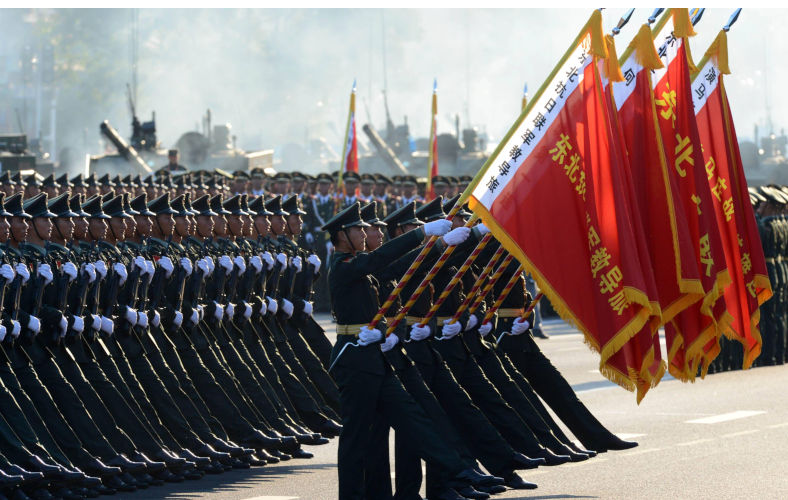Why China commemorates its WWII victory
August 22, 2025
On 3 September, China will hold a major parade at Tiananmen Square in the heart of Beijing to commemorate the victory of the Chinese People’s War of Resistance Against Japanese Aggression and the World Anti-Fascist War. Global leaders will attend the event and the Chinese military will showcase its latest weapons and regiment arrangements.
As the day approaches, there are noises growing online, dismissing China’s plans as a show of muscle and a government scheme to ignite nationalism under the threat of a new Cold War. Some pundits have even called for a complete sit-out by Western leaders. One question that’s being asked frequently is why China is holding the parade in the first place.
To begin with, it is a commemoration of the hard-fought victory of the Chinese nation, with its “blood, toil, tears and sweat”. From 1931, when Japan invaded China’s northeast, until Japan’s eventual surrender in 1945, China suffered about 35 million military and civilian casualties, which was more than one-third of the 75 million casualties worldwide. Chinese soldiers, whether they were part of the Kuomintang forces, or the Eighth Route Army and New Fourth Army led by the Communist Party of China, fought together. Among the 400 million Chinese civilians at the time, there were numerous heroes who resisted the barbarism of the Japanese through guerrilla campaigns, assisted both Kuomintang and CPC forces in major battles, and protected children, women and the elderly from Japanese slaughter. In one word, China is holding the parade because it won the war.
How frequently this question is asked is alarming because it shows just how silent the Western World War II narrative is on the China theatre of the war. Although there has been research on China’s contribution to defeat fascist Japan and acknowledgement of it by some Western historians like British scholar Rana Mitter, much of China’s role in ending World War II remains untold in the overall Western narrative.
China was the first country in the world to fight a fascist aggressor, making it the first front of the Global Anti-Fascist War. The Chinese people’s resistance began with the incident on 18 September 1931, when Japanese forces stationed in northeastern China blew up a section of the railway in Shenyang, Liaoning Province, falsely accused the Chinese military of sabotage, and used it as a pretext to bombard the city.
A few years later, the Lugou Bridge Incident took place in suburban Beijing on 7 July 1937. Japanese troops stationed near the bridge pretended to be searching for a missing soldier and sought to enter nearby Wanping County. When the Chinese military refused, the Japanese bombed the county seat and the bridge. This started a nation-wide resistance war against Japanese aggressors and established China as the main Eastern battlefield of World War II.
While the US dropping two atomic bombs on Japan brought the war to an end, and the British, Russian and French forces held down the majority of German Nazi forces in Europe, the Chinese consistently combatted the main forces of Japanese militarism in Asia. In total, China eliminated more than 1.5 million Japanese troops and played a decisive role in the ultimate defeat of the Japanese aggressors.
China is holding this major military parade also to serve as a reminder of how peace should be preserved and cherished. Wars are not distant memories for the Chinese and today’s peace in China did not come easily. The parade is a testament to China’s commitment to peace and strong will to defend the post-World War II global order that has benefitted all nations.
Finally, the parade is particularly relevant for today’s Asia. At the moment there are efforts by some right-wing politicians and pundits in Japan to deny the atrocities Japan perpetrated in the past. Also, there is a dangerous trend of global military powers trying to hype up the “China threat” theory so that they can come over and militarise the region. The parade is a warning to these forces attempting to take Asia down the wrong path of militarism.
Pearls and Irritations recommends: China and Australia once were allies by John Menadue.
The views expressed in this article may or may not reflect those of Pearls and Irritations.

